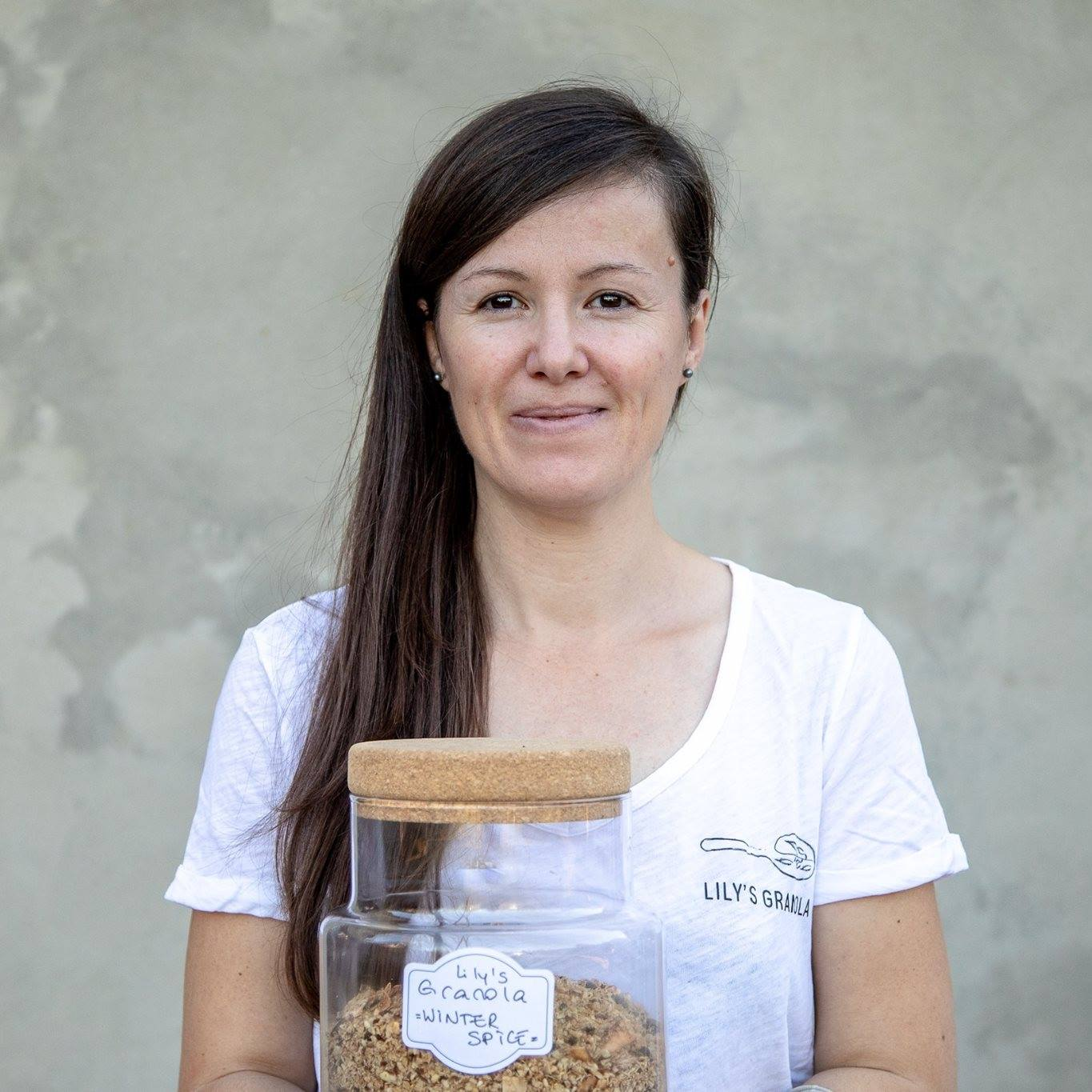JETTE, Brussels -- On the first floor of a former brewery in Jette, one of the 19 municipalities of Brussels, there is the workshop of Lily’s Granola. The company, founded in 2017 by Liliana Bordeianu, produces granola, and it made sustainability a trademark. Using ingredients from organic farmers, the firm sells a product that is claiming its market niche all over Europe. Liliana is doing it thanks to two secret ingredients: microfinance and social investing.
‘’I contracted two loans with two institutions (Credal and Funds for Good) in 2020, which helped me rent my new workshop, which is now three times bigger than what I had before. Now’’ she says ‘’I have a business coach with specific knowledge of the agri-food market, and it is nice to have him on my side.’’

Before starting her own business, Liliana worked for Toyota’s European HQ in Brussels, but she had some health problems: she did not have the energy to get to the office before 10 a.m., and her – then-unknown – condition prevented her from having a normal life. ‘’I passed from running marathons and half marathons to not being able to get up from bed’’ she remembers.
After a never-ending series of medical consultations, doctors found the problem, and she started to cook to find a correct diet for herself. ‘’It was a full-time job’’ she reckons ‘’but it was also a learning process.’’ The more she was cooking, the more she knew about food. This is the point when she decided to start a business.
From the idea to the product
Brussels is a city that offers help to people who want to start a business on their own. Liliana began with JobYourself, a programme that helps people build their business from scratch, providing coaching and administrative support. That led her to the first micro-loan and the inception of her business.
‘’It is not that easy’’ she reflects years afterward ‘’because my product is different, and it is not always easy to explain it to customers. Whenever I go to events and I have the chance to speak to customers, my granola almost sells by itself. With retailers, it is not always the case.’’

Before Covid, events were the main sales channel for Lili's Granola. During Covid, sales operations had to change and adapt to a new landscape. That's why digital technologies were beyond important.
‘’Before, we had a very standard approach to selling’’ Liliana says ‘’we were renting a warehouse and manually shipping our product. This led to several mishaps with retailers. Sometimes they were ordering the wrong product with wrong references and that did not help with customers.
Going digital
‘’What helped a lot was the adoption of e-commerce tools that helped us reach new stores in Belgium and beyond without worrying about warehousing.
‘’Thanks to these new systems, I have the chance to talk to people who sell our product so that they can really understand. There are Tinder-like apps that allow you to find your next partner and to sell the product better.’’
This comes after years of difficulties. Liliana reckons that, despite the clear demand for organic products, some retailers do not have much affinity with it. ‘’Some’’ she reflects ‘’do not understand that being so much added-value they could get better commissions if they just left it on their shelves.’’
This prompted Liliana to pursue other markets. But, often, local legislation poses barriers even within the EU. For example, Germany imposes taxation on single-use cans and bottles: empty containers need to be returned to firms’ headquarters, which poses obstacles to businesses like Liliana’s. ‘’It is true it is a barrier, but it is good for the environment,’’ she admits.
A sustainable business model
Sustainability is one of Lily’s Granola’s core values. The business tries as much as it can to rely on local farmers and organic products. Among them, there is a French oat producer who uses an ancient variant of the cereal. This helps support biodiversity and sustainable farming.
‘’Our granola might be slightly more bitter than the average competitor, but this is because we buy it from a French farmer who went organic 40 years ago. Usually, oat flakes are pressed and steamed, but we buy it raw to keep freshness.’’
Suppliers often give Lili’s Granola semi-transformed products. Paying for semi-transformed products means that they might not be extremely cheap, but it helps keep the supply chain sustainable. ‘’Sometimes suppliers operate in developing countries’’ says Liliana ‘’so we try to help them make more money paying for the added value of semi-transformed products.’’
EMN asked Liliana if she is happy. ‘’When the financials are good, I am the happiest person in the world’’ she replies, smiling. Despite the challenges of Covid and the current high inflation, Lily’s Granola is getting some attention: with her business coach, Liliana is evaluating two possible new business associates.
‘’If we like the proposal, we will take it,’’ she says.


